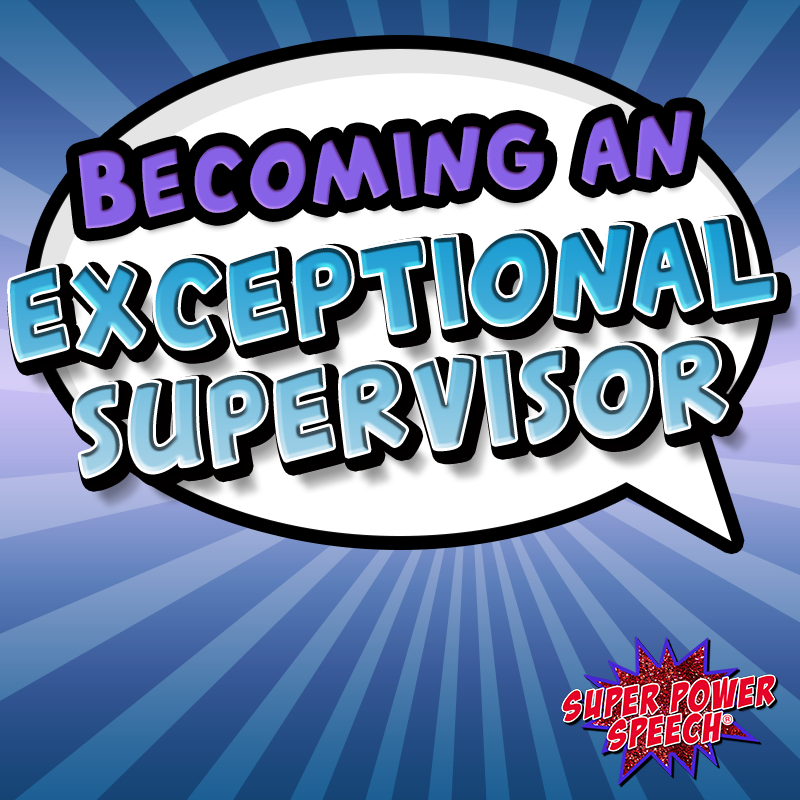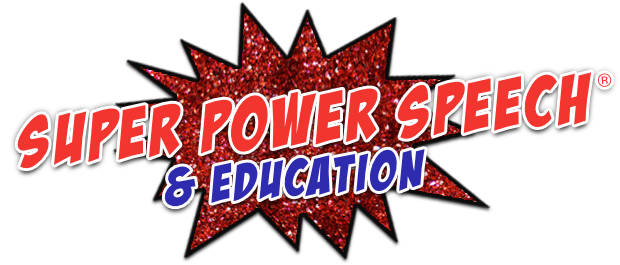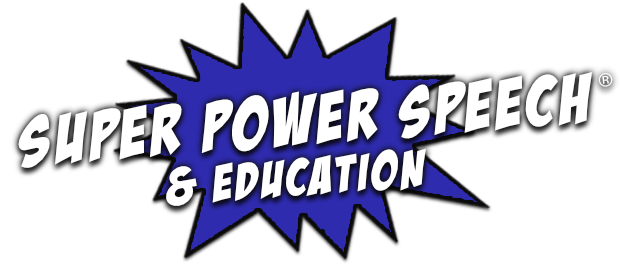Becoming an exceptional supervisor – an introduction for SLPs

What is one of the number one components to a successful career in speech-language pathology or other education/health related fields? Powerful, exceptional, and amazing mentors and supervisors. I still remember my graduate school supervisors with fondness and my clinical fellowship mentors with revere.
Conversely, what is one of the number one ways to deter someone from the field, suck their self-confidence, and make them dread working in an already challenging field? Lack of support! The stories I hear about atrocious supervisors make me cringe; I wonder how these now amazing therapists survived the training!
Every single speech-language pathologist has had the experience of working with clinical supervisors and mentors. Their experiences range from terrible to inspirational. However, many students and clinical fellows are not aware that in spite of the fact that supervision is a distinct area of practice (ASHA, 2008a) supervisors have typically had ZERO formal training on how to supervise. If you think about it, where would they get that training? Graduate school is not going to teach students how to supervise…
In her article in the ASHA Leader (2017), Elizabeth Beckley writes about what many supervisors have been feeling for years – unprepared. Supervision is big, complex and involved. And yet, the next generation of speech pathologists is dependent on our skills and experience!
A 2010 survey by ASHA’s Special Interest Group on Administration and Supervision (SIG 11) found that only 18.7% of survey respondents had received “college or university courses” in the field of supervision (as cited by CAPCSC, 2013). In spite of the lack of formal training, 67.6% stated that formal training is “very important” for supervision.
Although there has been no national requirement for continuing education in supervision, that will soon change. In 2020, ASHA will begin requiring 2.0 hours of training for any SLP who supervises a graduate student, assistant, or clinical fellow (ASHA, 2018). That sounds like a fabulous change and extremely helpful for supervisors, until one realizes how much skill and experience a good supervisor requires. Learning to be a great supervisor takes years of training, experience, and art form, not just a two-hour course. Trust me, I’ve been doing this forever and still feel like a novice!
In my own experience, I have supervised nine SLP-assistants and too many graduate students (15? 20?) to count, yet have never received training before this year. In fact, I had no idea that there are over 2000 written resources available through ASHA! At this moment I am beginning my second-semester course on supervision in my doctorate program. Before these courses, I had no idea just how complex and involved adult learning and training actually is. Although I had previously thought I was a good supervisor and my supervisees were lucky to have me, I have come to the harsh realization that while my heart was all in, my skills were mediocre at best.
So how can you be an exceptional supervisor?
- Self-assess
- Figure out the areas in supervision where you feel strongest and weakest by completing this free self-assessment offered through ASHA. Use these results to hone your focus when you…
- Read the literature
- ASHA’s Knowledge and Skills page (2008b) is packed with must-read information before you supervise even one more supervisee. In spite of my decade of supervision, I have learned so much from reading this information (over and over and over).
- ASHA’s Technical Report on Supervision (2008c) is a must read to better understand the theory of adult learning and supervisory styles.
- Determine expectations
- Write a list of expectations that you have for your supervisees. Review the list and make sure they are appropriate for the clinical experience of each supervisee.
- Share that list with the supervisee. There is nothing more difficult for a student than not knowing what is expected. Don’t be that supervisor. Be as transparent as possible from the beginning of your relationship.
- Turn the tables and ask your supervisees exactly what they expect of you.
- As a model, feel free to use the expectations that I have created for my interns here* and the expectations that my interns have for me here*.
Ponder this… what were the very best things that your supervisors did during your intern/externships? How could you incorporate these practices into your own practice?
*Note, these are VIEW ONLY documents. Please do not request access to edit it.
Resources
American Speech-Language-Hearing Association. (2008a). Clinical supervision in speech-language pathology [Position Statement]. Available from www.asha.org/policy.
American Speech-Language-Hearing Association. (2008b). Knowledge and skills needed by speech-language pathologists providing clinical supervision [Knowledge and Skills]. Available from www.asha.org/policy.
American Speech-Language-Hearing Association. (2008). Clinical supervision in speech-language pathology [Technical Report]. Available from www.asha.org/policy.
American Speech-Language-Hearing Association. (2018c). Certification standards to change in 2020. Retrieved from https://www.asha.org/certification/certification-standards-change-in-2020/.
Beckley, E. T. (2017). Nobody Told Me There’s No Supervision Manual! Proposed phased-in training for supervisors in the professions seeks to provide them with long-sought resources and support. The ASHA Leader, 22(10), 44-49. Retrieved from https://leader.pubs.asha.org/doi/full/10.1044/leader.FTR1.22102017.44
Council of Academic Programs in Communication Sciences and Disorders. (2013). White paper: Preparation of speech-language pathology clinical educators. Retrieved from http://scotthall.dotster.com/capcsd/wp-content/uploads/2014/10/Preparation-of-Clinical-Educators-White-Paper.pdf






